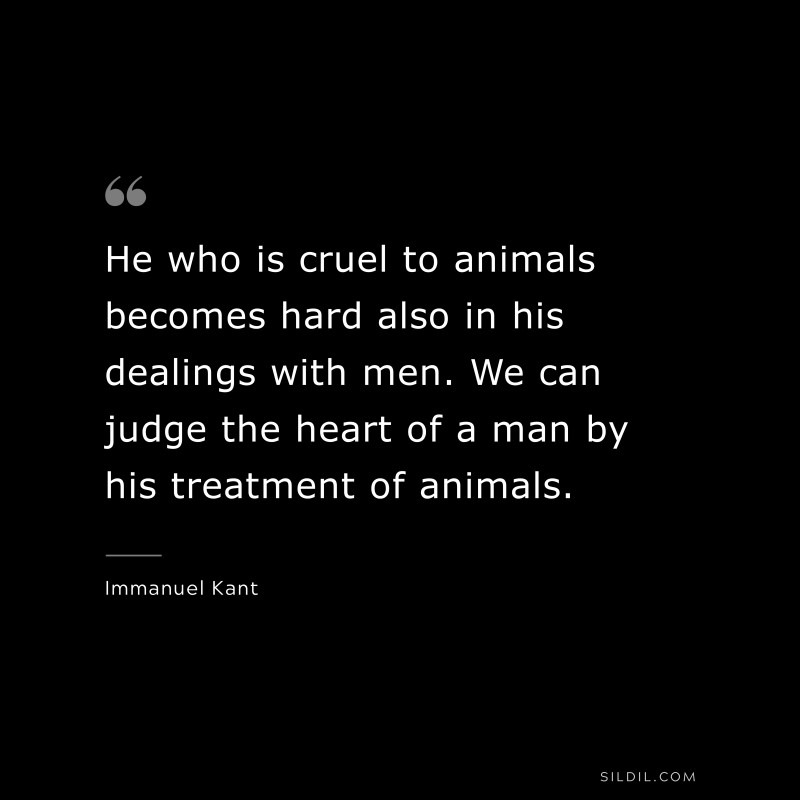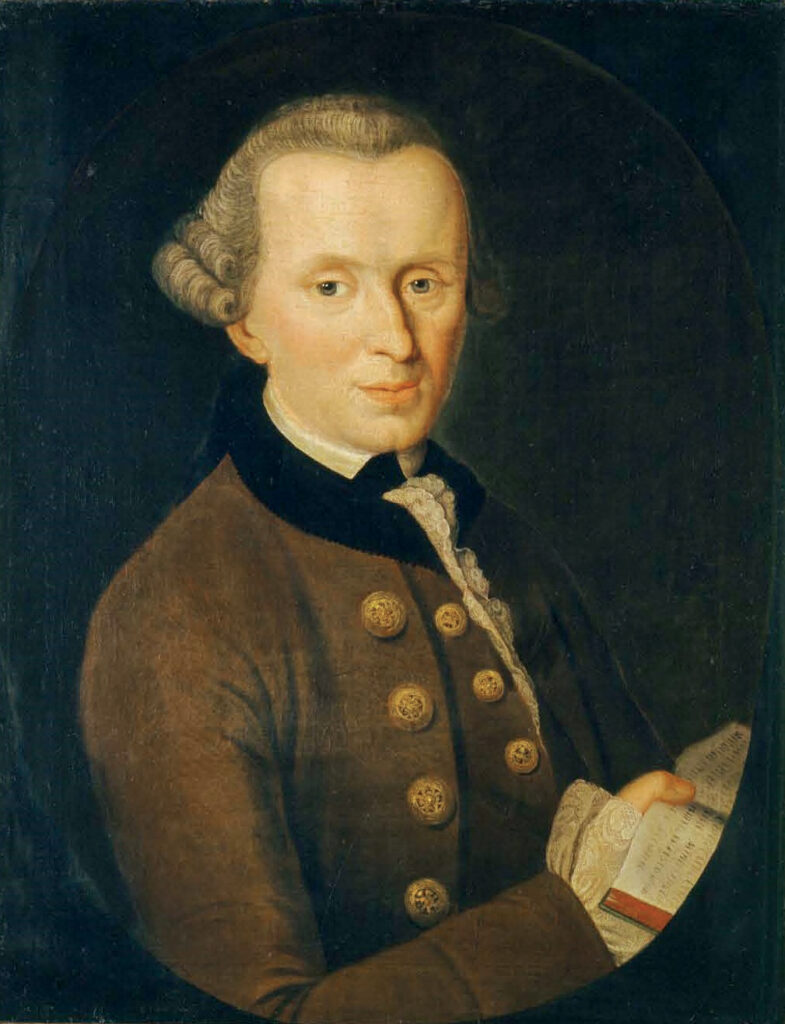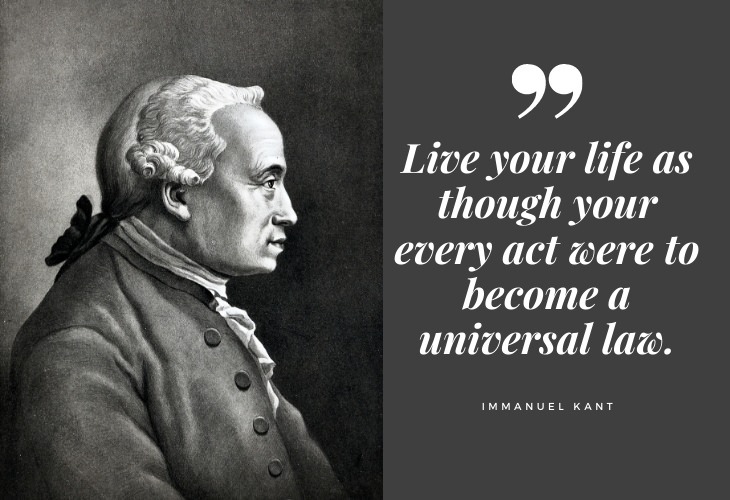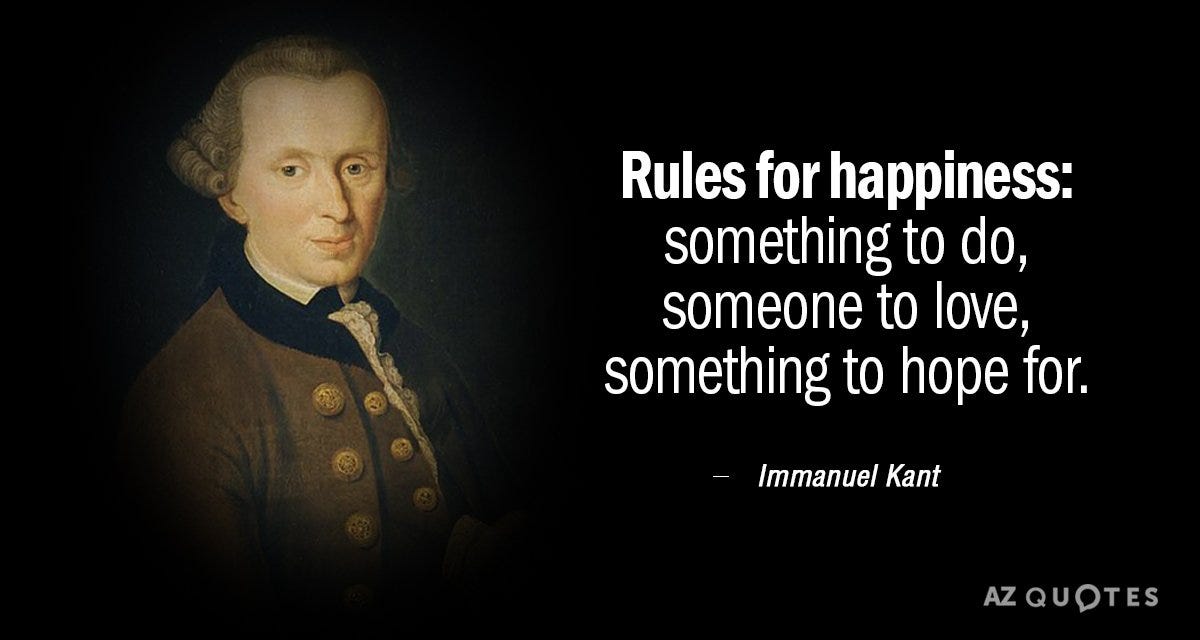An Immanuel Kant Biography consists of perpetual peace and brotherly love! Perpetual peace is one of Immanuel Kant’s most famous and most accessible essays. The German 18th- century philosopher’s point of departure is the observation that states are either at war or living in a fragile peace; conflict is part and parcel of their nature. He felt that the law was the only way to put an end to this problem. The law of the strongest, Kant said, had to be replaced by a legal system that would regulate relations between the different states.

Immanuel Kant Biography: Overview
Immanuel Kant (22 April 1724 – 12 February 1804) was a German philosopher and one of the central Enlightenment thinkers. Born in Königsberg, Kant’s comprehensive and systematic works in epistemology, metaphysics, ethics, and aesthetics have made him one of the most influential and controversial figures in modern Western philosophy.

In his doctrine of transcendental idealism, Kant argued space and time are mere “forms of intuition” that structure all experience and that the objects of experience are mere “appearances”. The nature of things as they are in themselves is unknowable to us. In an attempt to counter the philosophical doctrine of skepticism, he wrote the Critique of Pure Reason (1781/1787), his best-known work.
Kant drew a parallel to the Copernican revolution in his proposal to think of the objects of experience as conforming to our spatial and temporal forms of intuition and the categories of our understanding, so that we have a priori cognition of those objects. These claims have proved especially influential in the social sciences, particularly sociology and anthropology, which regard human activities as pre-oriented by cultural norms.

Kant Believed in Reason and the Law
Kant believed that reason is the source of morality, and that aesthetics arises from a faculty of disinterested judgment. Kant’s religious views were deeply connected to his moral theory. Their exact nature, however, remains in dispute. He hoped that perpetual peace could be secured through an international federation of republican states and international cooperation. His cosmopolitan reputation, however, is called into question by his promulgation of scientific racism for much of his career, although he altered his views on the subject in the last decade of his life.
Like many of his contemporaries, Kant was greatly impressed with the scientific advances made by Newton and others. This new evidence of the power of human reason, however, called into question for many the traditional authority of politics and religion. In particular, the modern mechanistic view of the world called into question the very possibility of morality; for, if there is no agency, there cannot be any responsibility.
The aim of Kant’s critical project is to secure human autonomy, the basis of religion and morality, from this threat of mechanism—and to do so in a way that preserves the advances of modern science.
In the Critique of Pure Reason, Kant summarizes his philosophical concerns in the following three questions:
Bust of Immanuel Kant by Emanuel Bardou, 1798
What can I know?
What should I do?
What may I hope?
The Critique of Pure Reason focuses upon the first question and opens a conceptual space for an answer to the second question. It argues that even though we cannot, strictly know that we are free, we can—and for practical purposes, must—think of ourselves as free. In Kant’s own words, “I had to deny knowledge in order to make room for faith.” Our rational faith in morality is further developed in The Groundwork of the Metaphysics of Morals and The Critique of Practical Reason.
The Critique of the Power of Judgment argues we may rationally hope for the harmonious unity of the theoretical and practical domains treated in the first two Critiques on the basis, not only of its conceptual possibility, but also on the basis of our affective experience of natural beauty and, more generally, the organization of the natural world. In Religion within the Bounds of Mere Reason, Kant endeavors to complete his answer to this third question.
These works all place the active, rational human subject at the center of the cognitive and moral worlds. In brief, Kant argues that the mind itself necessarily makes a constitutive contribution to knowledge, that this contribution is transcendental rather than psychological, and that to act autonomously is to act according to rational moral principles.
For More Information About Immanuel Kant and His Philosophy – Follow This Link…
Immanuel Kant: Biography, Philosopher, Critique of Pure Reason


